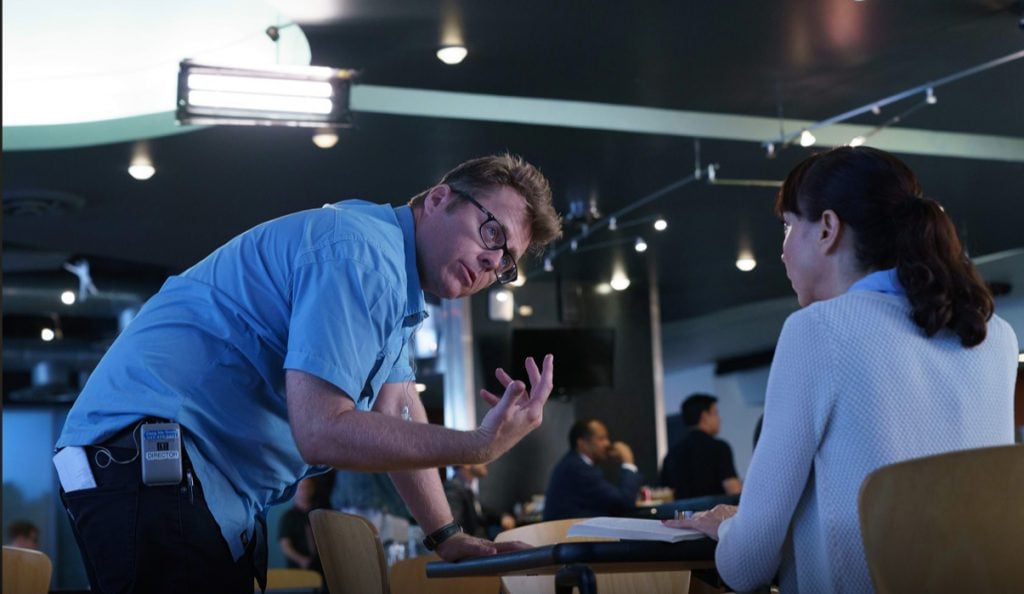by Brad Schreiber
Having been the director of development for TV/film director Jonathan Kaplan (Unlawful Entry, The Accused, NBC’s E.R.), I had the unique and special opportunity to read screenplays, as well as fiction and non-fiction books and articles, to see if there was anything which might interest him as a directorial assignment.
Anyway, it’s funny (funny-pathetic, not funny-funny) how you can notice certain simple, common failures after reading one or two thousand screenplays.
Applicable to drama or comedy, these obvious faults aren’t any laughing matter. As a young filmmaker, hoping to open doors with a script or your first film based on that script, you can metaphorically shoot yourself in the foot. There are simple mistakes that will say to potential investors, agents, producers, distributors, directors and others that you are not quite ready to enter the world of feature filmmaking.
Here is a summary of those disasters waiting to happen, regardless of the type of film.
1. Wrong format slug lines (scene descriptions).
It’s so simple.
INT. BRAD’S ESOPHAGUS – DAY or
EXT. ON TOP OF THE EIFFEL TOWER – NIGHT.
You don’t get a long string of location directions, like:
INT. THE SODA MACHINE, DOWN THE HALL FROM THE BROOM CLOSET, THE SECOND FLOOR OF THE HIGGENBOTTOM BUILDING – JUST BEFORE DUSK
2. Overly detailed character description.
When you introduce a character, you might include a bit about age or a certain quality.
In walks CECILIA, early thirties, a waif with a switchblade soul.
It would be fair to discourage you from writing:
In walks CECILIA, 20s or 30s, blonde hair, blue eyes, green eyeshadow, purple fingernails, five foot four with a pronounced limp in her right knee from a bad spill she took jumping out of a swing in her backyard when she was seven.
3. Too much or little detail in narrative.
There’s an old screenwriting joke which illustrates the failure of too little detail in the narrative of a script.
EXT. FIELD TENT – DAY
Napoleon stands at his tent, generals at his side.
NAPOLEON
I think I shall have some breakfast.
Behind him, the Battle of Waterloo rages.
Of course, screenwriters can err in the opposite direction, giving us too much detail, either slowing the flow with non-essential action or over-describing and not allowing the director a chance to use his/her imagination.
Clete pauses, thinking hard. He bites his lip in abject desperation, then puts the eraser of the pencil in his mouth. He begins to chew on the end, like a hungry rodent nibbling absentmindedly on something, he knows not what. Clete now puts the pencil to the paper and begins to darken one of the circles next to question number fourteen. He stops, though, wondering if this is the right answer and moves the pencil point just a fraction to the left.
4. Narrative that won’t read on film.
One of the most annoying mistakes made by screenwriters is the assumption that just because something is mentioned in the narrative, it will magically be understood by the eventual viewer of the movie.
John Vorhaus, author of The Comic Toolbox, has summed it up perfectly:
You could tell by his face he was thinking of Paris.
5. Back-to-back scenes in same location.
This happens when the writer needs to suggest a passage of time but is too lazy to go elsewhere and come back or to find a visually inventive way to suggest the amount of time that has elapsed (and forget using the old ashtray full of cigarettes butts).
6. Nick-of-time arrivals (deus ex machina or God from machine).
To make a rescue or important intervention acceptable, we must have a sense that the person saving the character in peril is at least in the vicinity or in any event has not gone 47 pages without being mentioned. And has the ability to be a savior.
The Spiny Ogre corners Pustula, backing her toward the Pit of Ultimate Gooeyness. Pustula looks terrified and her eyeshadow runs as she cries.
Suddenly, PROFESSOR MACTAVISH, late sixties, appears behind a vat, whips out his umbrella and jams it the Spiny Ogre’s ear. The Ogre roars and while trying to pull the umbrella out, stumbles to his hideous death in the Pit of Ultimate Gooeyness.
PUSTULA
Professor MacTavish, what are you doing here? I haven’t seen you since graduate school!
7. Clichéd dialogue.
Lazy writers use clichéd dialogue in situations we have seen before, because it is the first thing that comes into their heads. And why not? They saw and heard it in other scripts written by other lazy writers.
Fill in the dialogue:
Good Guys 1 and 2 are driving/flying/running somewhere, really, really fast. One looks back and sees some Bad Guys following, so he turns to the other Good Guy and says….
“Hey, we got company!”
Woman tells off Comedic Hero, shouting he is rude, insensitive and smells like a water buffalo. She throws a drink in his face and stomps away. Comedic Hero says….
“She wants me.”
8. Camera angles, music/credits info.
Nothing annoys a potential director more than having a screenwriter tell him/her how to direct or where to place opening credits. As for music, if the hero is a vampire and always listens to Frank Sinatra singing, “I’ve Got You Under My Skin,” that’s one thing. But don’t tell the director what the inevitable soundtrack will be.
9. Lumpy exposition.
Writers often try to rid themselves of exposition quickly and early, so that they may concentrate on moving the story forward visually. This is a noble intention but you get lumpy exposition if you try and impart it all at once, rather than gradually over the course of a story. It is also a poor choice to try and reveal too much information or information that is not crucial. Here’s one view of “taking your lumps.”
MORTIMER
(raspy, emotional)
Don’t you understand? The reason I can’t marry Edna is not because I don’t love her. When we met seven years ago at the hot dog stand at the greyhound races, I was deliriously
happy. Of course, that was before I was involved in the freak anvil accident which not only crippled my left kidney but my confidence as a soy bean futures salesman…and as a lover.
10. “Ho-hum” reaction to death, injury.
This one can be forgiven a little in black comedy, a form which comedically grapples with death and disfigurement. But even in comedy, if a character never realizes how terrible a loss is, then we feel cheated. We know in real life that the effects of an injury or death last a while, sometimes, (no pun intended) a lifetime.
11. Poor creation of tension and motivation.
In Lajos Egri’s classic, The Art of Dramatic Writing, he discusses three kinds of tension: Static, Jumping and Slowly Rising. The third is the most desirable because it neither stalls the action nor defies logic. Let us say a wife badgers her husband about taking out the garbage, which he always refuses to do.
Static: They argue back and forth and the problem is not resolved.
Jumping: They argue and suddenly, for no other reason, the Wife plunges a knife into the husband’s chest, killing him.
Slowly rising: The argument leads to either action or revelation that develops the narrative or characterizations in a believable way.
12. Unreal action.
Exaggeration is not the same thing as unreality. Do not confuse unreal action with our Wife with the hair trigger personality, above. She takes an unmotivated action, not one which seems hard to physically accomplish.
There must be an internal logic, an understanding based on what has been established, to strong action. Characters who grow another head or find they can shoot a gun with excellent accuracy do so for specific reasons, clearly and previously established by the good writer.
13. Show, don’t tell.
This is the oldest axiom there is about writing and yet, it is broken with alarming frequency. Film is a visual medium. Why tell us about a momentous event when you can create an image of it, with or without narration?
MELBA
You wouldn’t believe it. Zeb’s truck hit a pothole, the chickens flew up in the air, one landed on the windshield, and the damn thing stuck to the windshield wiper. Well, I tell you, Zeb couldn’t see real good, with all the feathers and blood and all and that’s probably the reason he plowed into the fruit stand and collapsed the entire building. ‘Course, it could have been due to his drinking bourbon at the time, too.
Oh, it’s a low budget movie and you can’t afford the shot? Get creative. Show a moment of the scene, use sound, have a character looking at a photograph…or holding up a wafer-thin, flattened chicken.
Even if you are directing your own script and the money is in place, these simple errors will impact the effectiveness of the script. The best technical support, directing and acting cannot compensate for a screenplay that fundamentally flawed. Why make filmmaking more difficult than it needs to be?
Brad Schreiber is author of the humor writing, how-to book, “What Are You Laughing At?” and creator of the Court TV series, “North Mission Road,” based on his book on the L.A. Coroner’s office, “Death In Paradise.” Awards and fellowships include National Press Foundation, Kingman Films Screenwriting Award, California Writers Club and Edward Albee Foundation. His personal Web site is www.bradschreiber.com





